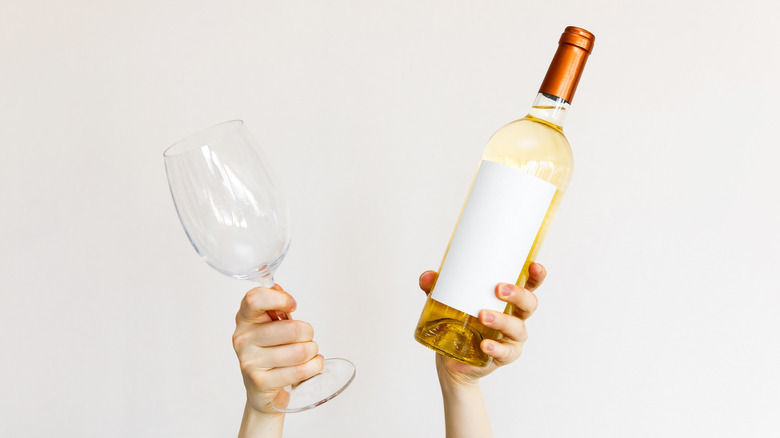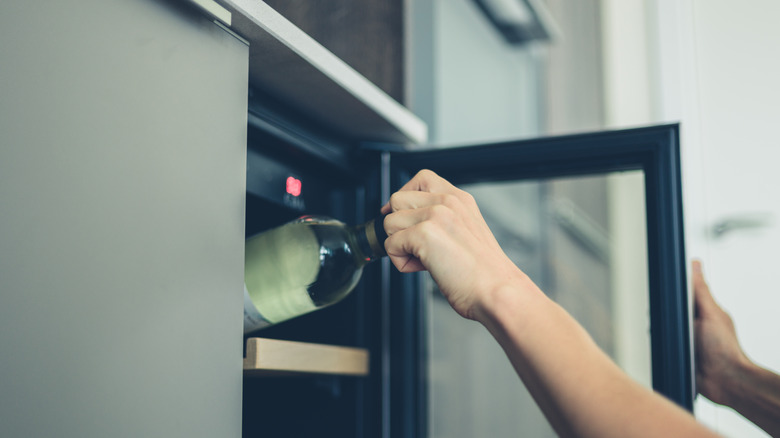Survey Shows 59% Of People Agree This Is The Best Way To Chill Wine
The heat of the summer sun means that cold beverages are a must. While water is the ultimate hydrator, what's life without a bit of variety? Sometimes food, ambiance, or simply great company beg to be paired with a great bottle of wine. But, if the only bottles you have on hand are far from frosty, what's the ideal way to give them a chill.
Generally speaking, VinePair recommends that sparkling wine be served cold (40-50°F), white and rosé served chilled (50-60°F), and red served cooled (60-70°F). Depending on a wine's structure, along with personal preference, there's also some wiggle room on what temperature a wine can be served. After all, wine is meant to be enjoyed by the drinker.
Curious to know how our readers at Tasting Table cool down their wines, we conducted a survey to see which method is used most frequently. Plus, we've also broken down the science behind each method.
Almost two-thirds of respondents say refrigeration is key
While there are several tricks to chill a bottle of wine, many experienced and novice wine drinkers alike can agree that there is one tired and true method. A whopping 59% of respondents said that refrigeration is the best way to chill wine, followed by submerging in ice water (18%), using a chilled glass (11%), and finally adding ice cubes (10%).
According to Wine Spectator, putting a bottle in the fridge is a great way to cool down a bottle before serving, however, it isn't actually the quickest method. Rather than wait 2 to 3 hours, Food & Wine suggests submerging a bottle in a bucket filled with ice water in order to chill wine within 20 minutes. Using this method also helps keep wine at an ideal temperature since the icy water is in contact with the whole bottle.
As for chilling your glass, it isn't a bad idea but it likely won't cool wine that much given the inability to hold cold temperatures, which is why some may turn to ice cubes. A faux pas in the world of wine, Decanter explains that doing this is often advised against because it can water wine down, which can distort aromas and flavors.

